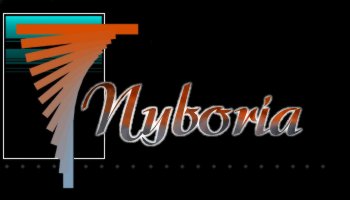The Book of Walls: The Nature of the Illusion
The Illusion as created and maintained by the Demiurge and his machines and servants works in a five-fold manner. That is, five aspects of what humanity believes to be real are perversions of the actual Reality, designed to keep the humans imprisoned. These five prison walls of the Illusion correspond with the five domains of magic as presented in the published KULT sourcebooks: Death, Madness, Passions, Dreams and Time and Space (or, the Dimensions). The following chapters dissect the function of these walls both inside and outside of the Illusion.
The five walls share a common theme: tools which should be at the behest of the Awakened (or rather, the Wakeful) have been made independent, they have been put above their former masters who are now their slaves. The means of our power have been given power over us instead. All five walls are inherent parts of ourselves which the Demiurge has separated from us and turned upon us.
It is important to note how far the Illusion goes - how much of what we take for granted is really only part of our prison. Malkuth's attempts to free humanity often seem very strange - she seems to have no regard for the bodies or minds of humans, their lives or their loves. The reason for that is that all of these things are part of the Illusion, part of what must be stripped away if humanity is ever to re-Awaken. Only if you understand this first can Malkuth's actions (or the actions of many other players in the KULT universe) be understood.
If you choose to follow the viewpoints presented in this text when designing your KULT campaigns you can reach an inner consistency and continuity apart from what is logical or reasonable. The KULT universe follows rules - but they are not rules which were meant for humans (that is, players and their characters) to fully understand. Game masters, on the other hand, need to have a good grasp of the concepts underlying the game world in order to present a structure of game reality which is horrid in its consequence.
The philosophical options presented in this text are by no means the only, and definitely not the 'correct' interpretation of KULT cosmology. In some cases I deviate from what is included in the official rules. If you feel that things should be different, by all means devise your own game logic. If this text inspires you to do so it has already served its purpose. It doesn't matter which cosmology you choose to work into your KULT games - but I am sure it will improve your games if in the end you have a clear idea of the nature of Kult Reality and the Illusion.
